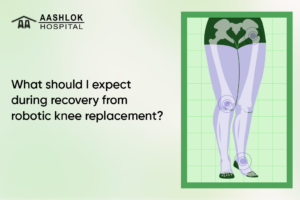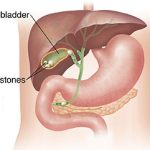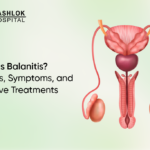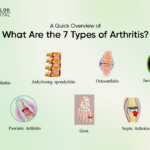What should I expect during recovery from robotic knee replacement?

Recovering from a robotic knee replacement is a long-term process that requires an expert approach to pain management and recovery for long-term success. If you’re planning a robotic total knee replacement or have undergone this, understanding the phases of recovery can help in making a sound decision. In the bargain, choosing an eminent medical institution with a supportive environment like Aashlok Hospital can significantly contribute towards a pragmatic recovery experience. With our expertise in total and partial robotic knee replacement
surgery and competence in patient-centred care, we can aid you towards a path of relief.
Understanding the journey of robotic knee replacement involves careful preoperative planning, meticulous surgery, and structured postoperative rehabilitation. Patients who opt for robotic total knee replacement benefit from enhanced precision, leading to improved outcomes and faster recovery. This blog explores everything, from the way to fast recovery to the robotic knee replacement cost. Let’s dive deeper into it!
Also Read : The Advantages and Disadvantages of Robotic Knee Replacement: A Comprehensive Guide
Table of Content
Introduction
Phases of Pre-Surgery and Post-Surgery Recovery
- Phase 1: Pre-Surgery Preparation (Before Surgery)
- Phase 2: Post-Surgery (Days 1–7)
- Phase 3: Early Recovery (Weeks 2–6)
- Phase 4: Midway Recovery (Months 1 to 3)
- Phase 5: Advanced Recovery (Months 4–6)
- Phase 6: Return to Normalcy (Months 6–12)
Dietary Pattern to Follow After Robotic Knee Replacement
- Protein-Rich Diet
- Fruits and Green Leafy Vegetables
- Whole Grains and Pulses
- Healthy Fats and Hydration
- Calcium and Vitamin D
Follow-up care after Robotic Knee Replacement Surgery
Phases of Pre-Surgery and Post-Surgery Recovery
The entire process of robotic knee replacement is categorised into six different phases as listed below:
Phase 1: Pre-Surgery Preparation (Before Surgery)
- Physical Rehabilitation: Your surgeon may suggest exercises to enhance the strength of the muscles near the knee, and provide dietary recommendations as appropriate for managing weight prior to the robotic knee replacement surgery, which may also be beneficial for recovery after the surgery.
- Medical evaluations: It may include tests such as an electrocardiogram, X-rays, and blood draws and examinations for any underlying medical issues or risks prior to the procedure.
Phase 2: Post-Surgery (Days 1–7)
- Physical therapy starts within 24 hours, focusing on basic movements like standing and walking with aids.
- Pain and Swelling Management is done via medications, ice packs, and leg elevation.
Phase 3: Early Recovery (Weeks 2–6)
- Physical Therapy Progression from mediocre to complex exercises, focusing on restoring range of motion and strength, begins.
- Examining the surgical site by orthopaedic surgeons to ensure that the site is healing without the intervention of infections.
Also Read : All you need to know about – knee surgery
Phase 4: Midway Recovery (Months 1 to 3)
- Low-impact activities like Quadriceps and Hamstring stretches are advised to improve knee strength and endurance.
- During the midway recovery, most of the patients experience pain-free walking.
Phase 5: Advanced Recovery (Months 4–6)
- After 4-6 months the knee regains better flexibility and strength, enabling participation in a broader range of activities, signifying functional improvements.
- Therapists generally fine-tune walking patterns and posture to ensure normal movement and focus on gait training.
Phase 6: Return to Normalcy (Months 6–12)
- Most patients regain nearly fully functional knees and mobility during this period. Activities like step flexion stretches and step-ups should be performed.
However, maintaining an active lifestyle with a concentration on knee-friendly exercises ensures long-term success. Following your doctor’s guidance helps in boosting the lifespan of your implant, and periodic check-ups with your orthopaedic surgeon ensure adequate functionality of your knee.
At Aashlok Hospital, we stand by our patients starting right from the pre-surgery preparation to long-term maintenance and pain management before and after the robotic knee replacement. Our physical therapist’s instructions act as a catalyst in achieving optimal results.
Also Read : Pain Management After Knee Replacement: Tips for Comfort
Pain Management Post-Surgery
Here are a few quick tips for pain management after the robotic knee replacement surgery:
Medicational Recommendations
- Pain Reliever medications such as opioids are prescribed for short-term use immediately after robotic knee replacement surgery, which are highly effective in managing acute pain.
- Non-steroidal anti-inflammatory Drugs (NSAIDs) help in reducing inflammation around the knee which is considered a normal occurrence post-surgery.
Ice Therapy
- Using cold compresses or ice packs reduces swelling, providing significant relief. Patients should adopt this multiple times a day, especially after physical therapy sessions, as they complement each other in relieving pain.
Physical Therapy and Massage Therapy
- Structured physical therapy as per your physical therapist’s instructions is crucial for restoring manoeuvrability and averting stiffness. Incorporating simple activities like standing knee bends and stair climbing should be the priority.
- Once approved by the specialist, gentle massages around the knee area can act as a pain reliever and soften the scar tissue.
Pain Management and Recovery not only relies on therapies but also on healthy dietary patterns to heal your muscles and bones. One can recover and perform competently with an optimum amount of proteins and nutrients, so that faster recovery can be made possible.
Also Read : Best Exercises for Recovery After Knee Replacement Surgery
Dietary Pattern to Follow After Robotic Knee Replacement
You can follow the mentioned dietary pattern after getting a robotic knee replacement for a quicker recovery:
1. Protein-Rich Diet
Proteins act as the building blocks for muscles, and after robotic knee replacement surgery, your body requires extra protein to rebuild damaged tissues and support the healing process. One should ensure consuming 1 g of protein for every kilogram of their body weight to promote faster recovery.
2. Fruits and Green Leafy Vegetables
Spinach, broccoli, oranges, and berries are packed with vitamins, minerals, and antioxidants that combat oxidative stress and inflammation caused by surgery.
3. Whole Grains and Pulses
Whole grains like quinoa and brown rice are high in fibre, Vitamin B and Iron, which help in maintaining gut health and prevent constipation and contribute to weight management.
4. Healthy Fats and Hydration
Healthy fats should be taken pre- and post-surgery from sources like nuts, seeds, and fish oil, which help in reducing inflammation in the body and support overall recovery. Water is essential for tissue repair, joint lubrication, and toxin elimination. A patient should drink at least 6 to 8-ounce glasses of liquid per day
5. Calcium and Vitamin D
Calcium-rich foods like milk, yogurt, and eggs help maintain bone density around the surgical area and support muscle recovery. Vitamin D enhances calcium absorption and contributes to faster recovery. Patients with insufficiency are advised to take oral cholecalciferol.
By incorporating these foods, you’ll not only accelerate healing but also strengthen your overall structure. After recovery, consistent follow-up care is a necessity to ensure your joints’ health and functionality for the upcoming years. At Aashlok Hospital, we emphasize nutrition as a key part of recovery. Our expert dietitians provide tailored plans to boost healing, ensuring you get the right nutrients for a smooth, speedy return to mobility.
Also Read : Knee Replacement Cost in India: How to Choose the Right Surgeon and Hospital
Follow-up care after Robotic Knee Replacement Surgery
For a proper recovery, you can go for the below-mentioned follow-up care after getting your robotic knee replacement surgery done:
Physical Therapy Assessment
Your physical therapist will monitor your progress, evaluate your improvement in strength and flexibility, and advise exercises that won’t cause strain.
Imaging Tests
X-rays, MRI scans, and fluoroscopy may be performed during follow-up visits to ensure the implant’s positioning and identify potential complications, such as loosening or misalignment.
Also Read : What to Expect from a Partial Knee Replacement Surgery?
Conclusion
Follow-up care is a diamond in the rough and should not be overlooked. Going forward, the recovery process following robotic knee replacement surgery involves careful planning both before and after the operation, along with continuous support in the long run. Selecting the right hospital plays a vital role in this journey, and Aashlok Hospital emerges as an excellent choice. With our dedication to cutting-edge technology and tailored care, we are fully equipped to assist you. Whether you have questions about the robotic knee replacement cost or require expert guidance, our team is here to help you at every stage of your path to regaining mobility.
FAQs
Is robotic surgery good for knee replacement?
Robotic Knee Replacement Surgery offers 3D imaging of the knee joints, real-time feedback, and sensory guidance, allowing orthopaedic surgeons to plan the procedure with great detail and a minimally invasive approach, which leads to better alignment, speed up recovery and extended implant life, making it a good option for you to consider.
What is the success rate of robotic knee replacement surgery?
The success rate of robotic knee replacement surgery in India is above 90 per cent.
What is the recovery time for a robotic knee replacement?
Patients start walking within two days and resume daily schedules within 4-6 weeks.
How much does a robotic knee cost?
The average cost can range from ₹1.5 lakh to ₹2.5 lakh.












